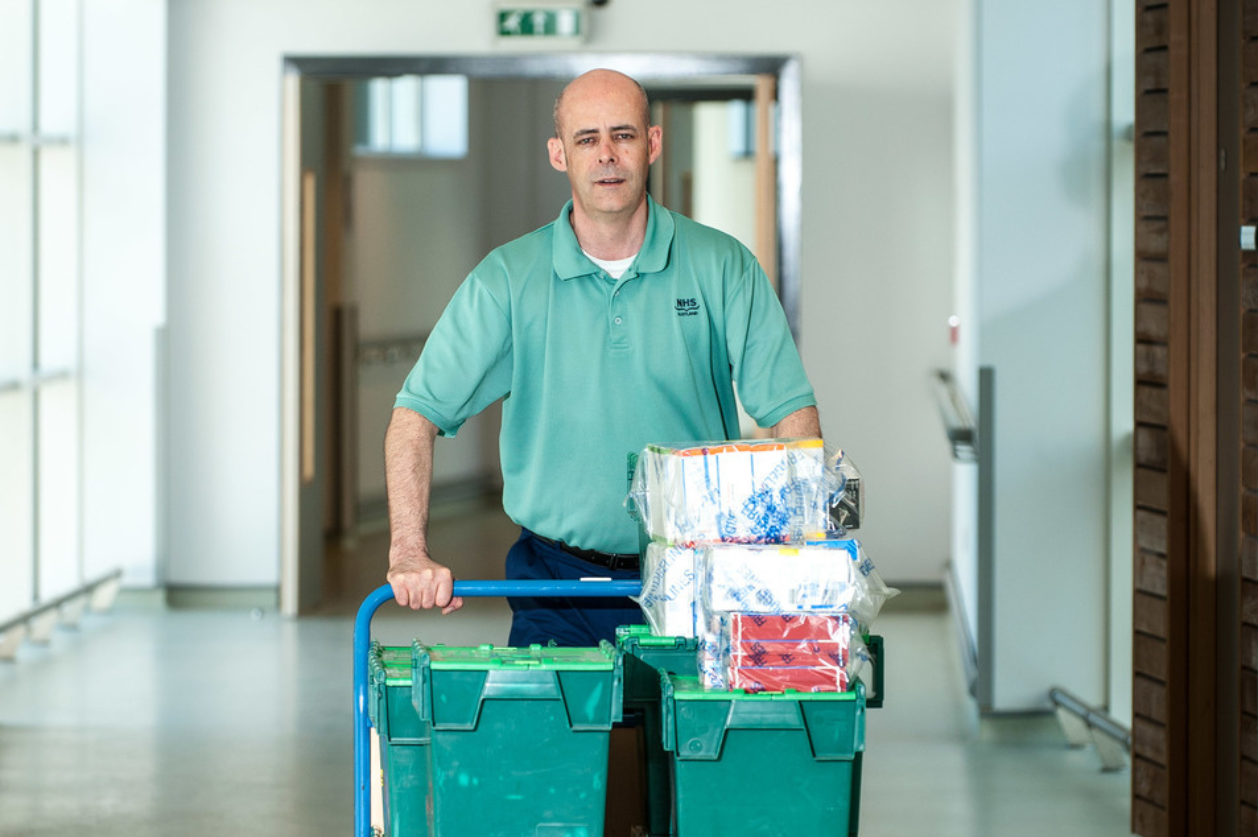Previous
Plumber
You can become a porter in the NHS by applying for vacancies on our recruitment website.
Porters work in portering services teams, helping to make sure that equipment, materials, mail, biological samples, and medications are in the right place at the right time.
They also transport patients between hospital wards and departments safely, with care and dignity.

To become a porter, you'll need a good standard of education. Useful subjects include:
Speak to your guidance teacher about subjects offered at your school.

You may find it helpful to get some healthcare experience by doing a work placement or volunteering. You’ll get training, increase your knowledge, and learn new skills. This could help you when applying to university, college or a new job with NHSScotland.
Some customer service and healthcare experience, including manual handling skills are useful for a role in portering services.
If you choose to go to college, you could do the following qualifications to learn some of the skills and knowledge needed for this role:
As a porter, you'll carry out a wide range of general tasks so that a high level of service is provided at all times.
Tasks may include:
You'll need these skills:
Porters work with the following:
You could work in:
Learning specific to your role includes:
Your NHS employer will confirm their training requirements during your induction.
Once in the job, there are opportunities to progress. Support is also available to help you develop your skills and encourage you to take qualifications, including:
Gaining new qualifications will help you when applying for more senior roles, such as portering supervisor or support services manager.

Discover the skills and qualifications you’ll need for each role and what the work will be like.
Explore careers
Discover the skills and qualifications you’ll need for each role and what the work will be like..
Help with recruitment